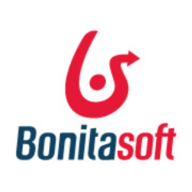

Appian and Bonita are both notable contenders in the business process management domain. Based on the comparison, Appian holds the upper hand due to its rapid development and extensive integration capabilities, providing faster ROI despite higher costs.
Features: Appian's key features include rapid low-code development, streamlined case management, and extensive integration capabilities. Bonita offers customization options, robust connectors for seamless integration with systems, and a flexible form-building capability.
Room for Improvement: Appian could improve its user interface customization, scalability, and offline capabilities. Its architecture limits certain customizations impacting larger enterprises. Bonita should expand its form builder for complex processes and improve its workflow features while enhancing documentation.
Ease of Deployment and Customer Service: Appian offers versatile deployment options, including public, private, and hybrid cloud environments, and excels in customer service with responsive support. Bonita mainly deploys on-premises, offering average customer support and fewer cloud options.
Pricing and ROI: Appian's pricing is on the higher end but is justified by its comprehensive features and rapid ROI through automation efficiencies. It offers flexible licensing models. Bonita provides a cost-effective alternative with a free community edition and flexible licensing options but offers less immediate ROI.
| Product | Market Share (%) |
|---|---|
| Appian | 3.5% |
| Bonita | 2.1% |
| Other | 94.4% |


| Company Size | Count |
|---|---|
| Small Business | 20 |
| Midsize Enterprise | 9 |
| Large Enterprise | 44 |
| Company Size | Count |
|---|---|
| Small Business | 14 |
| Midsize Enterprise | 4 |
| Large Enterprise | 11 |
Appian is a unified low-code platform and solution used by businesses to build enterprise applications and workflows. This product adapts to the needs of clients and the technologies they are already using to combine their data in a single workflow and maximize resources. The platform has four main components through which it transforms the work process for companies of various sizes. They are:
Appian is utilized across a diverse set of industries, including automotive and manufacturing, energy and utilities, education, financial services, telecom and media, transportation, retail, insurance, healthcare, and life sciences. The most frequent use cases of Appian are customer journey, governance, risk and compliance, operational efficiency, supply chain, distributed order management, and environmental, social, and governance (ESG) management.
Appian Features
Appian has various features that allow users to create solutions for their businesses. These features can be separated into a few groups according to function, including automation, low-code application development, and integrations and data. Some of the most frequently used features of Appian include:
Appian Benefits
The benefits of using Appian include:
Reviews from Real Users
A practice leader - digital process automation at a computer software company values Appian highly because the product is easy to develop, low-code, and has a good user interface.
Alan G., an advisory board member at Codecon VR, Appian offers a clear application life cycle, easy to learn documentation, and comes with a fundamentals course.
We monitor all Business Process Management (BPM) reviews to prevent fraudulent reviews and keep review quality high. We do not post reviews by company employees or direct competitors. We validate each review for authenticity via cross-reference with LinkedIn, and personal follow-up with the reviewer when necessary.